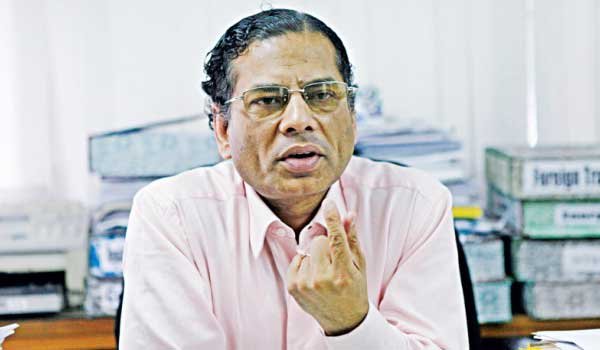Published in The Daily Star on Tuesday 21 July 2020
LAW WEBINAR
Legal and Policy implications on Commerce and Investment during Pandemic
The COVID-19 pandemic is affecting the economy around the world. The IMF has identified three areas of the Bangladesh economy that have been hugely impacted by this pandemic. Firstly, the domestic businesses are being severely hit due to the lockdown measures; secondly, the export sector, particularly in the RMG sector has also seen a sharp decline; and thirdly, the sources of foreign remittance from migrant workers has significantly fallen down. On the other hand, as more European businesses shift their focus from China, Bangladesh, as a budding investment hub, has the opportunity to improve its favourability in receiving more foreign investment.
To discuss these issues from legal and policy perspectives, Law & Our Rights, The Daily Star organised the webinar on ‘Legal Implications on Commerce and Investment during Pandemic’ on 14 July 2020. Mohammad Golam Sarwar, from Law Desk and also a Lecturer in Law, University of Dhaka moderated the webinar.

Professor Dr. Mustafizur Rahman, Distinguished Fellow, Center for Policy Dialogue (CPD)
Once Bangladesh graduates from its LDC status, it will no longer receive some of the market access and preferential treatment, including in the RMG sector. This is a vital concern at present, specially with regard to the impact of the pandemic. Although more initiatives are being undertaken to attract FDI in recent times, we have been falling short of meeting the goals. For example, we received 12 billion dollars in foreign investment against the expected 30 billion dollars envisioned in the 7th Five Year Plan. This means that despite the legal and policy incentives, we are unable to attract the expected amount of FDI inflow. It is also seen that the rate of re-investment is higher compared to new investments which means that we are not attracting enough new investors. If we look at the example of Vietnam whose GDP is close to that of ours, we will realise that they have a substantially larger FDI inflow, mostly from the export-oriented businesses facilitated through their special economic zones.
We are going through a three-dimensional risk including health risk, economic risk and humanitarian risk. Without addressing our health risks, we cannot really proceed with economic revival. A good idea might be to incorporate foreign investment in the development of our infrastructure including power and health sectors. Now is the time for us to confluence many positive opportunities; we must act soon to utilise this window of opportunity. We can prioritise sectors which are strategically important to our policy objectives, specially relating to sustainable development goals (SDGs), and work to attract foreign investment in these areas.
We must also think about how to provide decent work to a substantial percentage of the population that has gone or is about to go beneath the poverty line due to the pandemic. They will have to be given employment opportunities in the industrial sector. Furthermore, we must look beyond the RMG sector and explore other industries for diversification.


